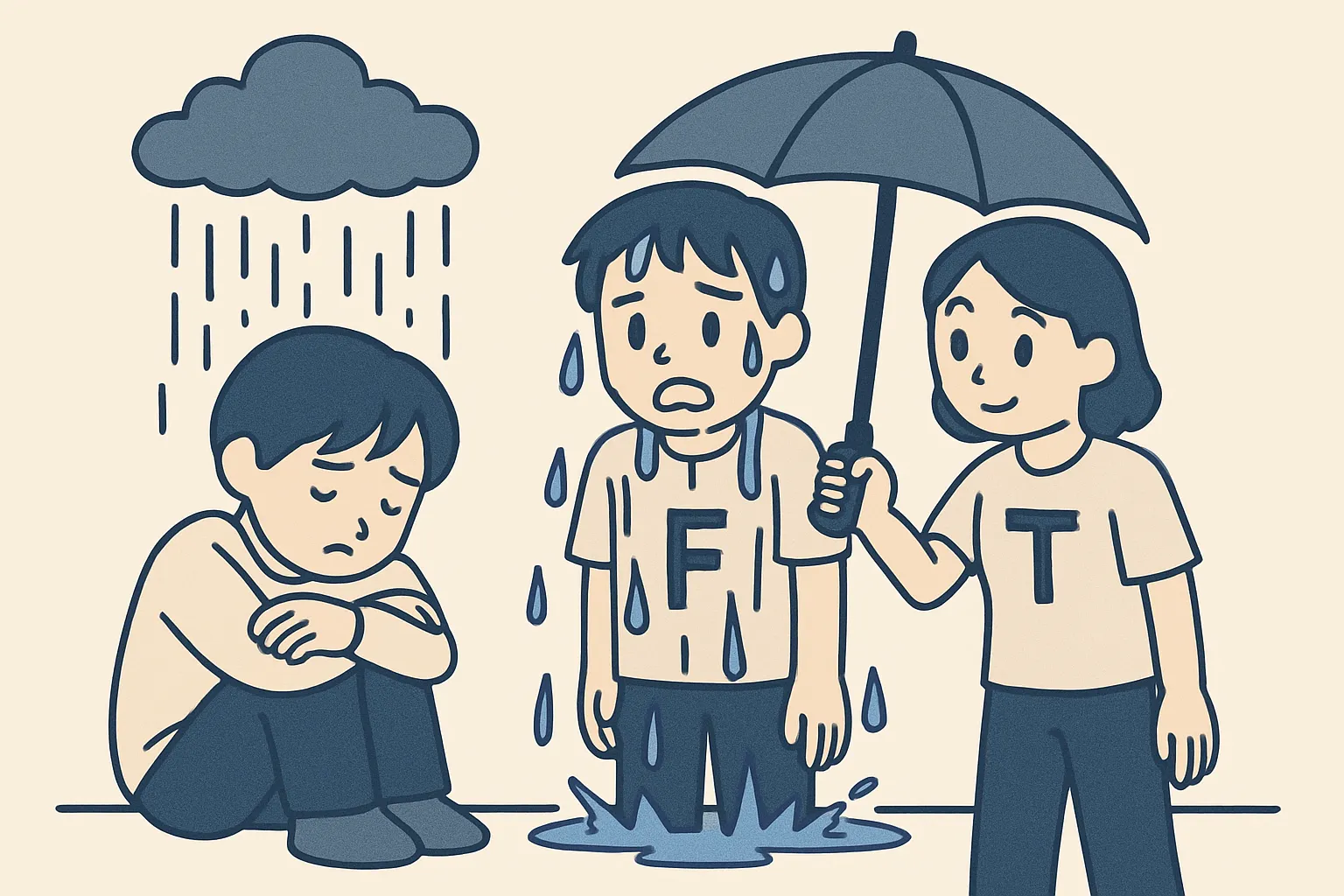Disagreeing with Your Korean Boss? The Art of Smart Rebuttal
Hello! Welcome to Maeil Hangeul, the place to upgrade your Korean skills for the real world!
Ever been in a meeting where you have a brilliant idea, but it contradicts what your boss just said? Navigating disagreements in a Korean workplace can feel like walking on a tightrope. It requires a delicate balance of respect and assertiveness.
Interestingly, many Korean companies are now trying to foster a more “horizontal communication” culture (수평적 소통). However, the deep-rooted hierarchical structure still plays a huge role. That’s why today, we’re going to learn the sophisticated art of disagreeing respectfully. These phrases will make you sound not only fluent but also culturally intelligent and a valuable team player.
Let’s dive in!
Core Expressions for Diplomatic Disagreement
Here are some essential phrases that will help you voice your opinion constructively.
1. 조심스럽지만, 제 생각은 조금 다릅니다.
- Pronunciation [Romanization]: Josimseureopjiman, je saenggageun jogeum dareumnida.
- English Meaning: “If I may be cautious, my opinion is a little different.”
- Detailed Explanation: This is the quintessential “cushion phrase.” You’re literally saying “I’m being careful, but…” It immediately signals that you respect your superior’s authority and are not challenging them aggressively. The word 조심스럽다 (josimseureopda) is key here; it shows deference and thoughtfulness before you present your counter-point. It’s a very polite and safe way to begin.
- 💡 Pronunciation Tip:
In 다릅니다, the ‘ㅂ’ (b) sound in the final syllable of the stem ‘다르다’ changes to an ‘ㅁ’ (m) sound before ‘니다’. This is a common Korean phonetic rule called nasalization, where a consonant sound becomes a nasal sound (ㄴ, ㅁ, ㅇ) when it meets another nasal. So, instead of “dareubnida,” it’s pronounced smoothly as [dareumnida].
2. 그 말씀도 일리가 있습니다만, 혹시 이런 관점은 어떨까요?
- Pronunciation [Romanization]: Geu malsseumdo illiga itseumnidaman, hoksi ireon gwanjeomeun eotteolkkayo?
- English Meaning: “There is a point to what you’re saying, but what about this perspective, by any chance?”
- Detailed Explanation: This expression is brilliant because it validates the other person’s opinion first. 일리가 있다 (illiga itda) means “to have a point” or “to make sense.” By acknowledging their logic, you show you’ve listened carefully. Then, you gently introduce your idea as just another “perspective” (관점) with softeners like 혹시 (hoksi – by any chance) and the suggestion form -은/는 어떨까요? (eotteolkkayo? – how about…?).
- 💡 Pronunciation Tip:
The pronunciation of 있습니다만 is [이씀니다만, isseumnidaman]. Notice two things happen here: the ‘ㅆ’ (ss) sound is pronounced as ‘ㄷ’ (d) before a consonant, and then the ‘ㅂ’ (b) in ‘습’ nasalizes to ‘ㅁ’ (m) before ‘니다’. It sounds complex, but it makes the flow much smoother than saying “it-seub-ni-da-man.”
3. 제가 혹시 놓친 부분이 있다면 알려주십시오.
- Pronunciation [Romanization]: Jega hoksi nochin bubuni itdamyeon allyeojusipsio.
- English Meaning: “Please let me know if there’s a part that I’ve missed.”
- Detailed Explanation: This is an incredibly humble and strategic phrase. Instead of directly stating a flaw in your superior’s plan, you frame your disagreement as a potential gap in your own understanding. It opens the door for discussion by positioning them as the expert who can fill you in. This shows you are open-minded and value their experience, making them more receptive to your eventual point.
- 💡 Pronunciation Tip:
In 놓친 (nochin), the ‘ㅎ’ (h) at the end of ‘놓’ combines with the following ‘ㅈ’ (j). This process, called aspiration, strengthens the ‘ㅈ’ into a ‘ㅊ’ (ch) sound. So, instead of “noh-jin,” it becomes a single, fluid sound: [노친, nochin].
Example Dialogue
Let’s see these phrases in action! Imagine a marketing team meeting.
- A: 부장님 (Director):
“이번 신제품 마케팅은 유명 연예인을 모델로 씁시다. 그게 가장 확실한 방법입니다.”
(For this new product’s marketing, let’s use a famous celebrity as our model. That’s the most certain method.) -
B: 김 대리 (Assistant Manager Kim):
“조심스럽지만, 제 생각은 조금 다릅니다. 물론 연예인 모델의 파급력은 크지만, 비용이 너무 많이 듭니다.”
(If I may be cautious, my opinion is a little different. Of course, the ripple effect of a celebrity model is huge, but it costs too much.) -
A: 부장님 (Director):
“비용은 문제지만, 그만큼의 효과를 보장하니까요.”
(The cost is an issue, but it guarantees that much of an effect.) -
B: 김 대리 (Assistant Manager Kim):
“그 말씀도 일리가 있습니다만, 요즘 타겟 소비층은 진정성 있는 스토리에 더 반응합니다. 혹시 실제 사용자들의 후기를 활용한 캠페인 관점은 어떨까요? 제가 혹시 놓친 부분이 있다면 알려주십시오.”
(There is a point to what you’re saying, but our target consumers these days respond more to authentic stories. What about the perspective of a campaign that utilizes reviews from real users, by any chance? Please let me know if there’s a part that I’ve missed.)
Culture Tip & Trend Deep Dive
In today’s Korean business world, simply following orders without question is no longer seen as the only virtue. Companies are looking for proactive employees who can contribute to better decision-making. This is part of the “Smart Work” (스마트 워크) trend.
“Smart Work” isn’t just about efficiency; it’s about communicating intelligently. Using the phrases we learned today shows that you are not just disagreeing, but are actively engaging in a problem-solving process for the good of the company. You are respecting the hierarchy (수직적 문화) while practicing constructive dialogue (수평적 소통). This balance is what modern Korean companies value highly. By mastering this, you’ll be seen not as a subordinate who challenges authority, but as a capable professional contributing to the team’s success.
Let’s Wrap Up & Practice!
Today, we learned some incredibly useful, high-level expressions for navigating disagreements in a Korean workplace. The key takeaways are: cushion your words, validate their opinion, and frame your suggestion humbly.
Now, it’s your turn to practice!
- Fill-in-the-blank: Your team leader suggests a project deadline that you think is unrealistic. How would you politely start your response?
____________________, 마감일을 조금 더 늦추는 것은 어떨까요?
(…, how about pushing the deadline back a little?) - Sentence Building: You think there might be a flaw in the data your boss is presenting. How would you ask them to clarify, in a humble way? (Use the phrase for “if there’s a part I’ve missed”)
Ready to become a master communicator in your Korean office? Try using one of today’s expressions to answer the practice questions in the comments below! We’d love to see your sentences






